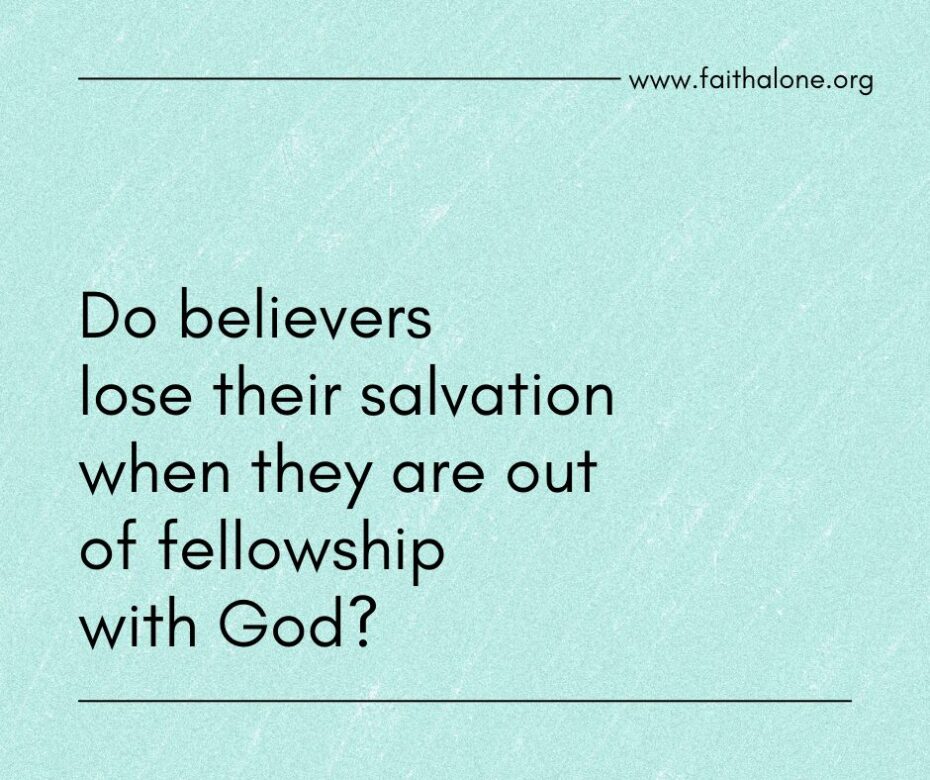“For if you forgive men their trespasses, your heavenly Father will also forgive you. But if you do not forgive men their trespasses, neither will your Father forgive your trespasses” (Matt 6:14-15).
A group of Bible scholars and pastors recently released a free documentary called Once Saved, Always Saved, with the words Always Saved crossed out. You can view it here. They say the Bible teaches that salvation is lost whenever a believer is out of fellowship with God.
Dr. David Berçot is an author and church historian. In the video, he quotes Matt 6:14-15, from the Sermon on the Mount, to prove that everlasting life can be lost. Here is a transcript of what he said:
“[Jesus said] ‘For if you forgive men their trespasses, your heavenly Father will also forgive you. But if you do not forgive men their trespasses, neither will your Father forgive your trespasses’ (Matt 6:14-15).
Now if once saved, always saved is true, then that statement is false. For it would mean that we will be admitted to heaven even if we haven’t forgiven others their trespasses” (51:50 to 52:16).
Notice what we do not see in Matt 6:14-15. We do not see the words everlasting life, salvation or justification.
What we do see there is the promise that if we do not forgive others, then God will not forgive us.
Implied in what Jesus is saying is that if we forgive others, then God will forgive us.
Dr. Berçot and the other scholars who participated in this documentary think that being out of fellowship with God means you lost your salvation.
Do you think that if you’re out of fellowship with God then you no longer have everlasting life?
Do believers lose their salvation when they’re out of fellowship with God?
The words forgive and forgiveness occur seventy times in the NT. They are fellowship words. They are not equivalent to justification or everlasting life.
Compare Matt 6:14-15 with 1 John 1:7, 9:
But if we walk in the light as He is in the light, we have fellowship with one another, and the blood of Jesus Christ His Son cleanses us from all sin (1 John 1:7, emphasis added).
If we confess our sins, He is faithful and just to forgive us our sins and to cleanse us from all unrighteousness (1 John 1:9, emphasis added).
Notice that there are two conditions for the forgiveness of our sins and our cleansing: 1) We must walk in the light. 2) We must confess our sins.
Matthew 6:14-15 is not a third condition for forgiveness of sins. It is part of walking in the light. As we walk in the light, we forgive those who trespass against us, and God forgives us. We will only fail to forgive those who sin against us if we are walking in the darkness.
Walking in the light and confessing our sins are not the same as believing in Jesus, which is the only condition of everlasting life (e.g., John 3:16).
We never hear the Lord say, “Whoever walks in the light as I am in the light has everlasting life and will never perish.” Nor did He proclaim, “Whoever confesses his sins has everlasting life and will never be cast out.” Nor did He promise, “Whoever forgives others has everlasting life and will never die spiritually.”
It is a tragic error to equate being in fellowship with God with being born again and being out of fellowship with God with no longer having everlasting life.
Imagine the results if this were true in an earthly family.
Spouses would be divorced every time they had an argument that wasn’t resolved quickly.
Teenagers would no longer be part of the family whenever they broke fellowship with Mom and Dad.
Matthew 6:14-15 is not an evangelistic verse. It is a fellowship verse. If you want evangelistic verses, go to the Gospel of John.


